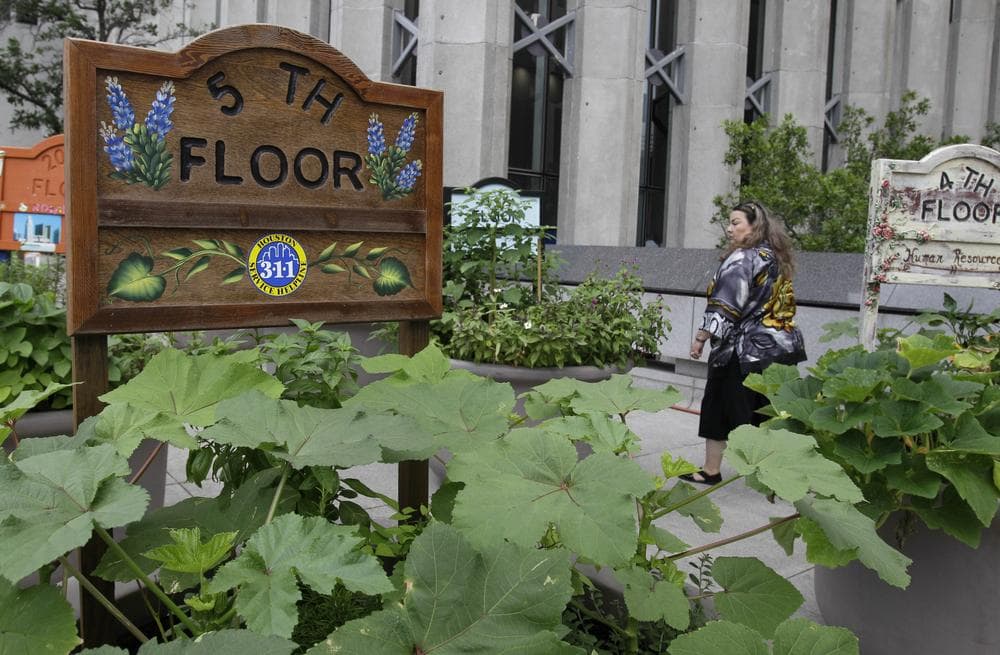Advertisement
Urban Gardeners Cash In On Demand For Local Produce
Resume
Tomatoes pile up in a greenhouse in the heart of Boston's inner city. Designer lettuce grows next to airports. Heirloom eggplants replace grass in small city backyards. Urban farms are sprouting up in almost every major city in the country. And unlike traditional community gardens, cities are attempting to use urban farms to create jobs and revitalize struggling neighborhoods.
"There's a wide spectrum of urban farms from the grass roots to commercial enterprises," Jennifer Oldham of Bloomberg News told Here & Now's Robin Young.
In Denver, people are running small businesses where they farm their neighbors' front and back yards, and then sell the fruits and vegetables at local farmers markets.
In Atlanta, a company called Podponics is using abandoned shipping containers to grow lettuce under the flight path at Atlanta's Hartsfield-Jackson Atlanta International Airport. In that case, the company is selling to some of the country's largest distributors of produce.
In Detroit, some blue collar workers are turning to urban farming as a second source of income. They grow fruits and vegetables in community gardens, and then enlist a non-profit organization to sell the produce at farmers markets on their behalf.
What's leading to the surge in urban farming?
"What you've seen is a duality," Oldham said. "With the recession, people like to save money by growing their own food."
Oldham says others are reacting to a desire to learn where their food comes from, fueled in part by books like Michael Pollan's "Omnivore's Dilemma" and documentaries like "Food, Inc.," which examine corporate agriculture.
Public Policy Concerns
In some cases though, the urban farmers are moving faster than policy makers.
For example, In Detroit, Hanz Farms wanted to convert vacant lots into farms, creating the largest urban farms in the country. However, state law in Michigan restricts large agricultural projects in cities. As a result, Hanz Farms has had to negotiate the policies locally, which has become a very complicated negotiation they didn't intend.
But Oldham says other states are being more proactive. In New York and Colorado, urban planners are doing surveys of farmers markets to try and gauge their economic impact, including determining how many jobs are being created. The officials hope this information will help them assist urban farmers with grants and other resources, so they will continue to grow.
"People are just starting to awaken to the fact that this is a sustainable thing," Oldham said. "It's not a fad... it's something that people have an interest in promoting."
Guest:
This segment aired on September 2, 2011.